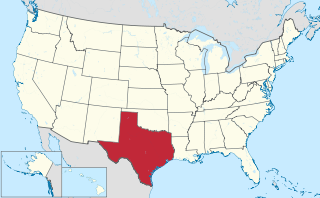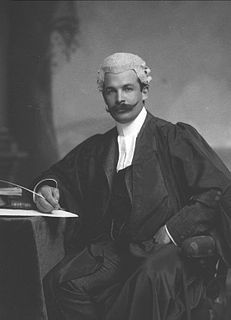An attorney at law in the United States is a practitioner in a court of law who is legally qualified to prosecute and defend actions in court on the retainer of clients. Alternative terms include counselor and lawyer. As of April 2011, there were 1,225,452 licensed attorneys in the United States. A 2012 survey conducted by LexisNexis Martindale-Hubbell determined 58 million consumers in the U.S. sought an attorney in the last year and that 76 percent of consumers used the Internet to search for an attorney.

Admission to the bar in the United States is the granting of permission by a particular court system to a lawyer to practice law in the jurisdiction and before those courts. Each U.S. state and similar jurisdiction has its own court system and sets its own rules for bar admission, which can lead to different admission standards among states. In most cases, a person is "admitted" or "called" to the bar of the highest court in the jurisdiction and is thereby authorized to practice law in the jurisdiction. In addition, Federal Courts of the United States, although often overlapping in admission standards with states, set their own requirements for practice in each of those courts.
A paralegal is an individual who is employed or retained by a lawyer, law office, corporation, governmental agency, or other entity and who performs specifically delegated substantive legal work for which a lawyer is responsible. Paralegals perform tasks requiring knowledge of the law and legal procedures. The exact nature of their work and limitations that the law places on the tasks they are allowed to undertake vary between nations and jurisdictions. A paralegal is not a lawyer but is typically employed by a law office or internal legal department of a company. Paralegals generally are not allowed to offer legal services independently in most jurisdictions. Paralegals operate under a form of independent legal ethics and, with few exceptions, must also conduct their work under the formal supervision of an attorney. In some jurisdictions, paralegals can conduct their own business and are called law agents, providing services such as settlements, court filings, legal research and other auxiliary legal services; these tasks often have instructions from a solicitor attached.

The State Bar of California is California's official attorney licensing agency. It is responsible for managing the admission of lawyers to the practice of law, investigating complaints of professional misconduct, and prescribing appropriate discipline. It is directly responsible to the Supreme Court of California. All attorney admissions and disbarments are issued as recommendations of the State Bar, which are then routinely ratified by the Supreme Court.

R. Fred Lewis was appointed to the Supreme Court of Florida on December 7, 1998.

A state bar association is a bar association that represents or seeks to represent the attorneys practicing law in a particular U.S. state. Their functions differ from state to state, but often include administration of the state bar examination, regulation of Continuing Legal Education and other requirements, and discipline of attorneys for ethical or other violations. State bars typically provide services for members such as maintaining a directory of attorneys in the state, facilitating social events for attorneys, publishing a bar journal and providing classes to fulfill these CLE credits requirements.

Practising Law Institute (PLI) is a non-profit continuing legal education (CLE) organization chartered by the Regents of the University of the State of New York. Founded in 1933, the company organizes and provides CLE programs around the world. Its programs are held in multiple locations including New York, California, Illinois, Washington D.C., Georgia, Massachusetts, Texas, Pennsylvania, London, and Hong Kong.
A personal injury lawyer is a lawyer who provides legal services to those who claim to have been injured, physically or psychologically, as a result of the negligence of another person, company, government agency or any entity. Personal injury lawyers primarily practice in the area of law known as tort law. Examples of common personal injury claims include injuries from slip and fall accidents, traffic collisions, defective products, workplace injuries and professional malpractice.
The Minnesota State Bar Association is a voluntary bar association for the state of Minnesota, including as members lawyers, judges, and other legal practitioners, such as clerks, registrars, and paralegals. The MSBA is one of the oldest state bar associations in the United States. Membership is not required to practice law in Minnesota.
Board certification is the process by which a physician or other professional demonstrates a mastery of basic knowledge and skills through written, practical, or simulator-based testing.
The Virginia State Bar (VSB) is the administrative agency of the Supreme Court of Virginia created to regulate, improve and advance the legal profession in Virginia. Membership in good standing in the VSB is mandatory for attorneys wishing to practice law in the Commonwealth of Virginia.
The New York County Lawyers' Association (NYCLA) is a bar association located in New York City.
A certified paralegal or certified legal assistant is the title of paralegals in the United States who have met certain education and work experience requirements and have passed one of a number of available certification exams. The primary function of paralegals is to assist attorneys in the delivery of legal services. According to the American Bar Association: “A legal assistant or paralegal is a person, qualified by education, training and/or work experience who is employed or retained by a lawyer, law office, corporation, governmental agency or other entity and who performs specifically delegated substantive legal work for which a lawyer is responsible.” Because certification programs are voluntary in most states, a paralegal may find work in the field without obtaining certification. Additionally, requirements for certification may vary by state.
The Alaska Bar Association is a mandatory bar association responsible to the Alaska Supreme Court for the admission and discipline process of attorneys for the State of Alaska. The association is governed by a Board of Governors with nine attorneys elected by the Bar's members and three public members appointed by the governor of Alaska. The Bar offers Continuing Legal Education and other member and public services, and currently has more than 4,000 members. The association is also responsible for administering the bar examination for the State of Alaska. The Bar has several membership categories, the most common of which are active in-state; active out-of-state; Inactive, senior, and retired.

CEB is a self-supporting program of the University of California. Founded in 1947 to educate veterans returning to the practice of law after service in World War II, CEB pioneered formal continuing legal education (CLE) and modernized its presentation by providing three, six, and 24 hour courses in locations that were convenient to California practitioners. CEB fulfills its mandate to cultivate the professional development of California lawyers by offering CLE courses and by publishing practice guides.
The North Carolina Bar Association (NCBA) is the voluntary (non-mandatory) bar association of the U.S. state of North Carolina. NCBA membership is voluntary and tax money is not involved in its support. In contrast, the North Carolina State Bar and the North Carolina Board of Law Examiners are state agencies.

The Inter American University of Puerto Rico, Faculty of Law is the school of law of the Inter American University of Puerto Rico, a private co-educational corporation accredited by the Middle States Association of Colleges and Schools, the Puerto Rico Council of Higher Education, and the Commonwealth of Puerto Rico Department of Education. The School of Law is approved by the American Bar Association (ABA) and is located in San Juan, the capital city of Puerto Rico. Since its founding, the School of Law has succeeded in meeting the needs of the legal profession, in particular, and Puerto Rico's society in general.
The Alaska Association of Criminal Defense Lawyers (AKACDL), founded November 30, 2009, is a voluntary non-profit professional association created to serve the needs of criminal defense attorneys in Alaska. AKACDL's primary goal is to provide continuing legal education ("CLE") for new attorneys as well as seasoned practitioners, and for both public defenders and private practitioners. AKACDL presents an annual educational event named the "AKACDL All*Stars Conference," usually featuring four nationally-recognized speakers at a two-day conference held at the Alyeska Resort in Girdwood, Alaska.










